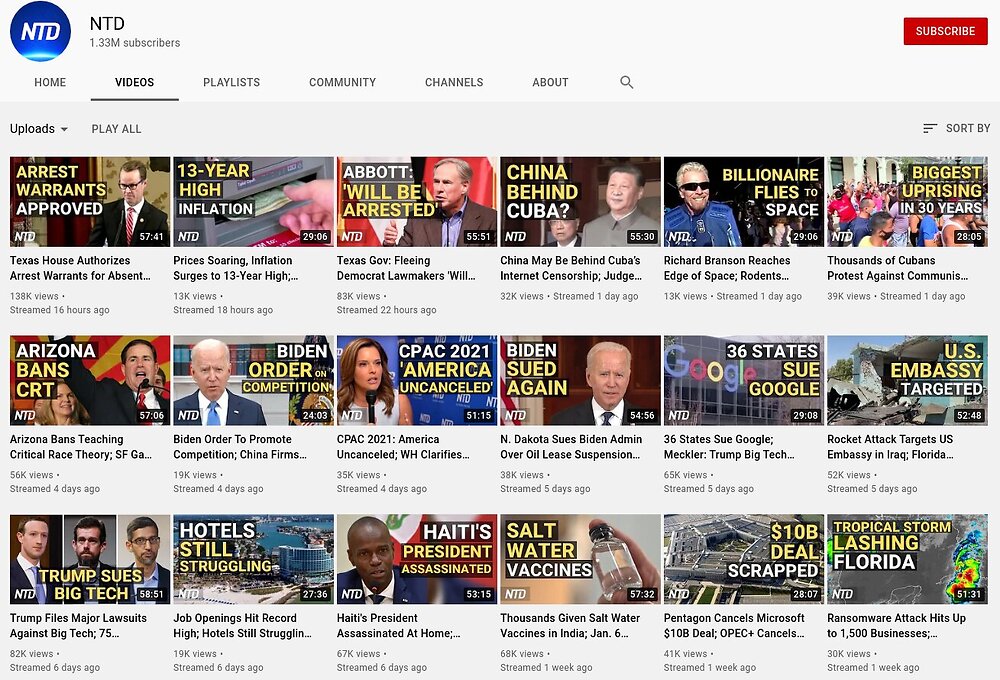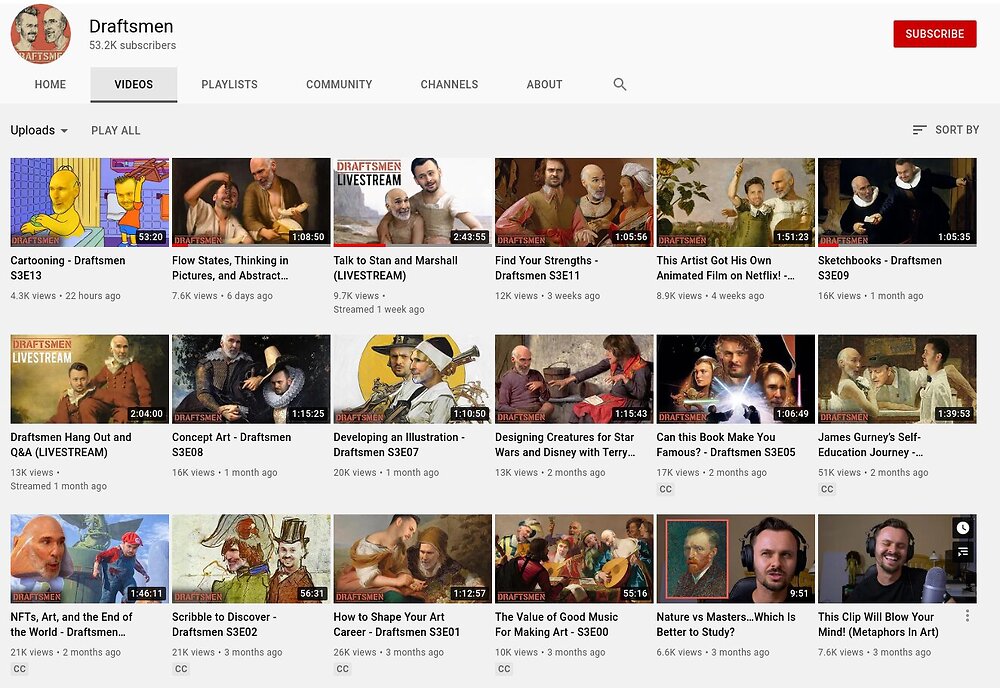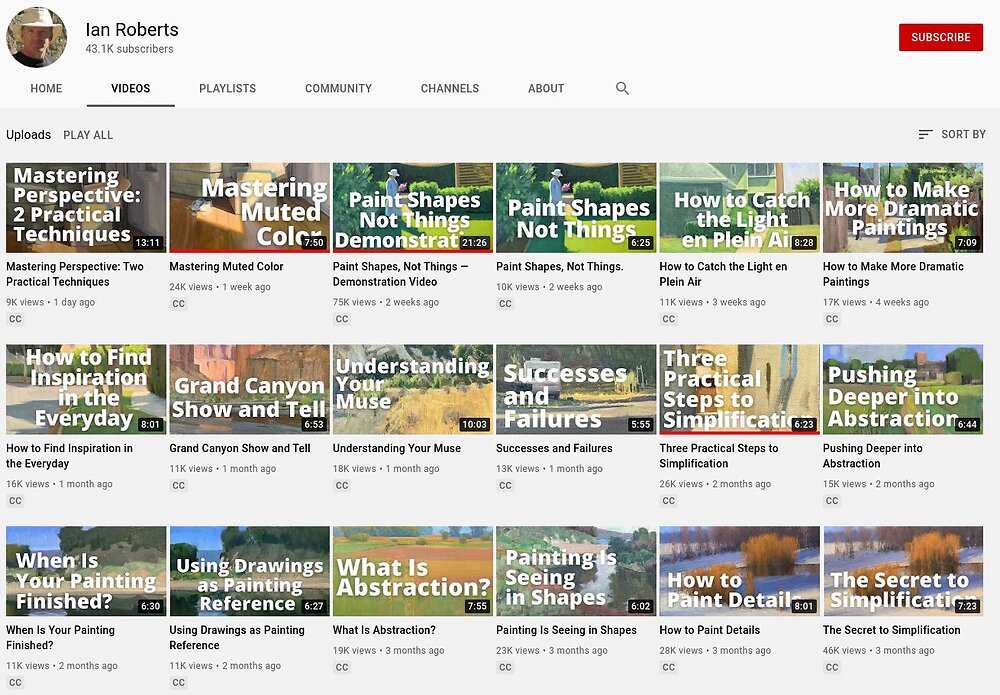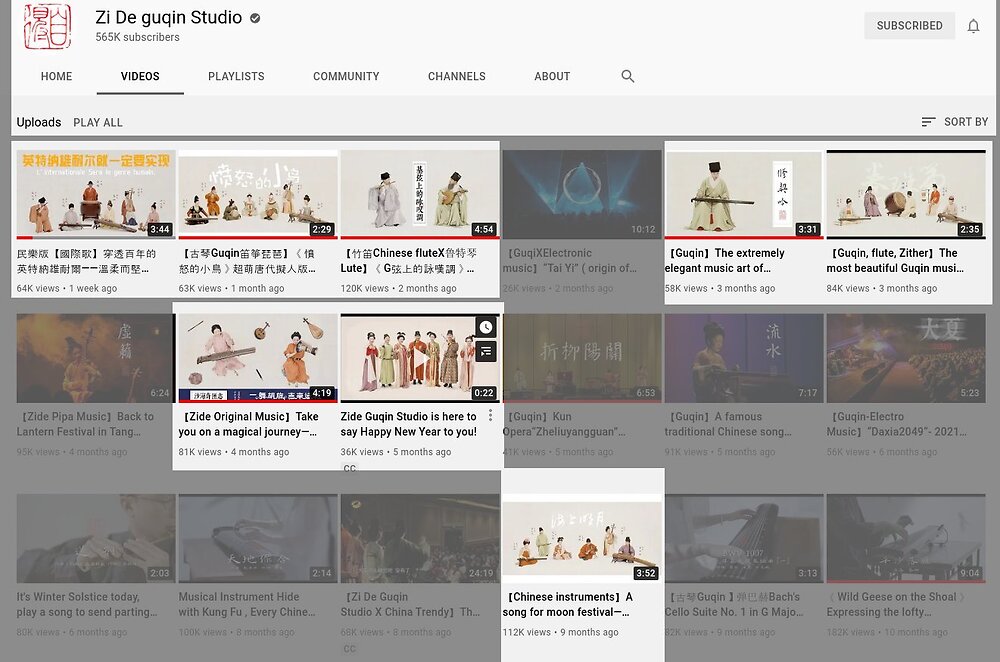Video thumbnails for YouTube, Dailymotion, PeerTube, etc. give personality to the content, and imprint durable first impressions, as would a person’s appearance.
As such, it’s only natural to cautiously design them.
Not only is this a great subject to apply and expand our knowledge of composition, beyond fine-art, but also to understand how subtle design decisions can (un)consciously affect ourselves/others, thus, a good starting point in advertisement study.

Recursion, Borély Park, 2019, Marseille, France
by
M. Bivert
Studies
We propose to study a few YouTube channels’ thumbnails, illustrating some hopefully insightful, yet non-exhaustive, aspects of thumbnail design:
- NTDTV (media);
- Drafstmen (learning, fine art, illustration);
- Ian Roberts (painting, composition);
- Zi De guqin Studio (music).
Out of necessity, media need to take care of their appearance; out of habit, artists have a developed æsthetic sense.
Thus why studying them in that context.
Bear in mind that, as for regular composition analysis, those presented here are subjective, and may not necessarily reflect (un)conscious design choices.
Again, contrasts, unity in diversity, and semantic analysis are key points.
NTDTV

Screenshot of NTD’s YouTube page, 2021 through youtube.com
NTDTV, as a(n american) media, exposes diversified content, reflected in the variation of colors and content of the background images.
Yet, this diversity is properly unified through the quasi-systematic presence of white and yellow text messages, surrounded by a slightly dark shade; a text that generally covers more than half of the thumbnail. This, combined to the relative graphical simplicity of the text contrasting sharply with the background image’s complexity, gives those words strength.
The spectator is an everyday person; the tone, the subjects, are formal, serious.
Drafstmen

Screenshot of Drafstmen’s YouTube page, 2021 through youtube.com
The Drafstmen recycle classical paintings well-known illustrations or cartoons, adjusting them so as to embed their faces.
As a consequence, there isn’t a strong sensible visual unity, as we had with NTDTV, but we still have a conceptual theme tying things together, in a way that will likely resonate with the channel’s public.
The tone is light, humoristic, and the channel likely targets artists, connoisseurs.
Ian Roberts

Screenshot of Ian Roberts’s YouTube page, 2021 through youtube.com
Ian Roberts, while he’s sharing through his channel his knowledge of composition, provides us through those thumbnails alone a master lesson on that matter.
As a background, simplified, realistic paintings. As they’re all imitating Nature in colors and design, they’re all effortlessly harmonious, whether isolated or as a group.
On that picture, a simple, clear, readable text message, expliciting the video’s theme.
Note how the text doesn’t contrast too strongly with the image, thus letting the background “shine” through: in comparison with NTDTV, the text is graphically simpler (no color variation, darker shade), and so is the image: this reduces graphical contrasts between both, hence lightens the (relative) text’s strength.
We’re here having an expert teaching novices the essence of his knowledge.
Zi De guqin studio

Screenshot of Zi De Guqin’s YouTube page, 2021 through youtube.com
Zi De guqin Studio, 自得琴社 , is much less visually unified; nevertheless, the æsthetically polished highlighted videos are quite balanced.
The colors are simple, aren’t too chromatic (i.e. they tend to be a bit grayish, brownish). The people, are clearly visible on the unified light background. The æsthetic of their placements recalls that of traditional Chinese paintings.
Note the design’s evolution over time, indicating either a personnel change, and/or skills refinement.
Exercices
The reader may want to foster his analysis skills by looking at other YouTube channels, for instance trying to answer:
- Who is the target public?
- What is the character, the identity of the channel?
- What is the emotional impact?
- How do the graphical choices (image, color, text) contribute to the previous elements?
- How are those choices evolving over time?
- What distinguishes the approaches of two channels? Of two channels in the same domain?
A small selection of study subjects:
- Paul Foxton (painting);
- James Gurney (painting);
- Institut des libertés (French media);
- Le Monde (French media).
Comments
By email, at mathieu.bivert chez: